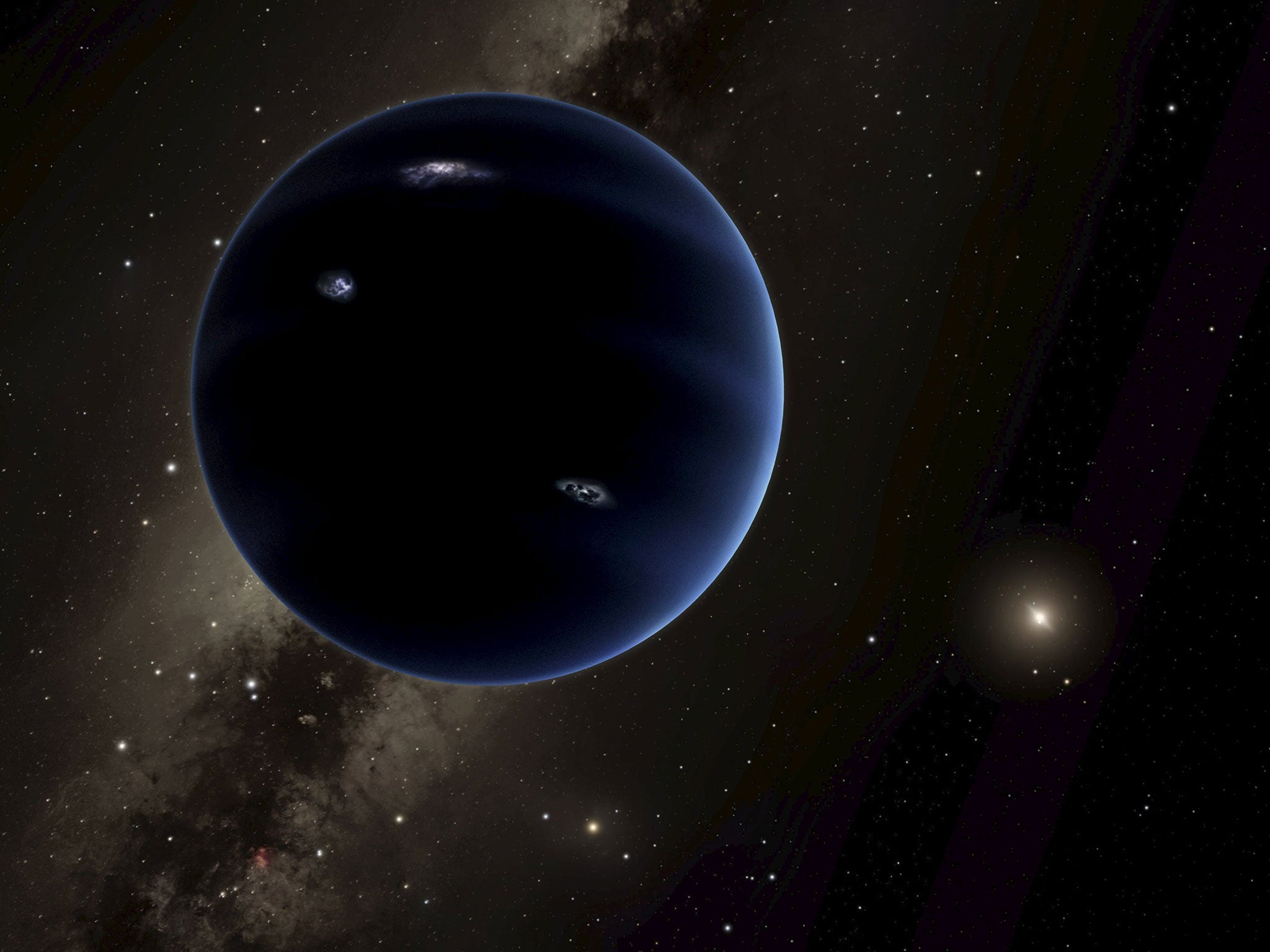David Bowie fans want Planet 9 to be named in his honour
If there really is a new planet, it won't be called Bowie, as many fans hoped. But who will get the important task of bestowing a title? Simon Usborne investigates

With a heavy heart, The Independent can exclusively reveal that the hypothetical, massive planet making headlines this week will definitely not be named after David Bowie. There were optimistic and well-meaning calls for Planet Nine, as the space oddity is provisionally being called, to be named officially in honour of the late singer.
"We have seen this proposal but we certainly wouldn't choose, with all respect for David Bowie, that name," says Piero Benvenuti, the general secretary of the International Astronomical Union (IAU), the body that has governed celestial nomenclature for almost 100 years. "It would not be adequate." Blunt, but not the biggest barrier to any new planet christening. "First we have to see if indeed this body exists," adds the Italian astronomy professor at IAU HQ in Paris. "Even if we knew its position, we do not have powerful enough telescopes, so the question of naming it makes no sense."
But let's not allow cold science to get in the way of idle speculation, Piero. If and when we develop telescopes big enough to see the hypothetical giant, which researchers at the California Institute of Technology believe explains the strange movement of objects in the distant Kuiper Belt, what then?
"There would be some kind of vote," Benvenuti says. But, he adds, submissions would follow the tradition of borrowing names from Greek or Roman mythology (Earth, unless you call it Gaia, is the exception among the eight known planets). "The intention would be to have a coherent set of names."
If Benvenuti sounds a touch vague, that's because new planets don't pop up every day. The five brightest planets were identified without the need for telescopes thousands of years ago, and had various names before the Romans started a heavenly convention. (Mercury was known by Ancient Greeks as Stilbon or "the gleaming" before it earned the name of the messenger god.)
We know more about the naming of the "invisible" planets. First came Uranus in the 18th century. William Herschel, who observed the body for years before it was confirmed as a planet, had wanted to name it Georgium Sidus (George's Star) in honour of King George III. A nice thought, but the rest of the world wasn't impressed. It took 70 years for Uranus to stick.
By then, the French astronomer Urbain Le Verrier had spotted another planet and fought hard to name it after himself. Neptune was later agreed to be more appropriate. Then came poor, doomed Pluto. This time the process was relatively more democratic. After several submissions, Venetia Burney, an 11-year-old schoolgirl from Oxford, won the right to name a planet. She lived just long enough to see the IAU reclassify Pluto in 2006 to dwarf status, but it kept its name.
Today, the IAU is fully prepared for naming lesser celestial bodies via its Executive Committee Working Group Public Naming of Planets and Planetary Satellites (it could arguably do with an easier name). Rules state the names have to be of fewer than 16 characters and non-offensive; and they cannot honour pets, commercial entities (back off, Nike), living individuals, or places or events "principally known for political, military or religious activities".
So if the name for a new planet met these rules, what are our options, deity-wise? "Perhaps something involving darkness," says Professor Andrew Coates of the Mullard Space Science Laboratory at University College London. "Or mystery – because we haven't seen it yet." Erebus was the primordial god of darkness...
But is there a god of jumping the gun? Benvenuti offers the example of Vulcan by way of warning. Long before Spock, Vulcan was a hypothetical planet identified in the mid-19th century by Le Verrier of Neptune fame. In demonstrating Newton's gravity laws, Le Verrier proposed that a planet inside the orbit of Mercury must explain the anomalous movements of other bodies he had observed. He called it Vulcan, but the anomalies were later explained by Einstein's theory of relativity. There was no planet "This is why we must wait and see," Benvenuti says. µ
Join our commenting forum
Join thought-provoking conversations, follow other Independent readers and see their replies
Comments
Bookmark popover
Removed from bookmarks